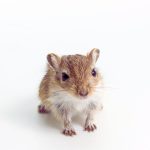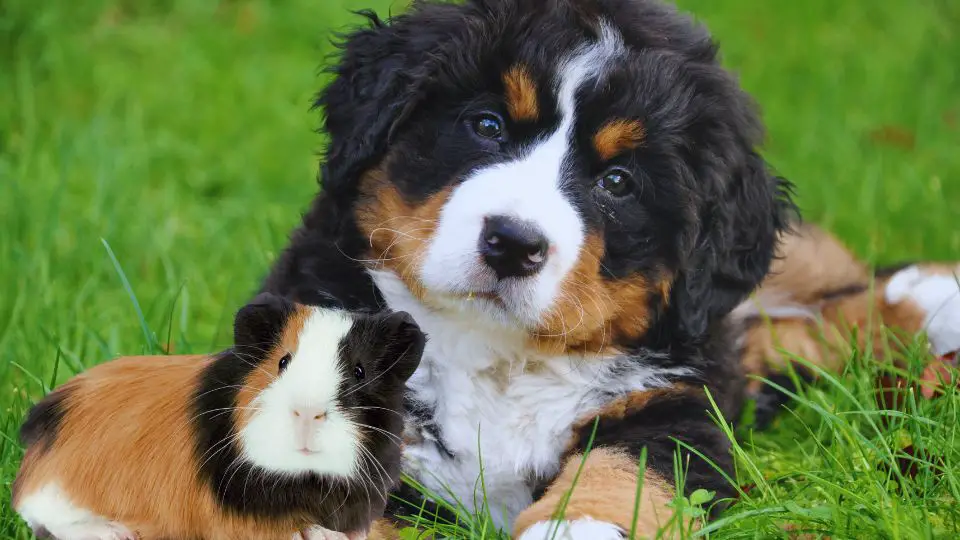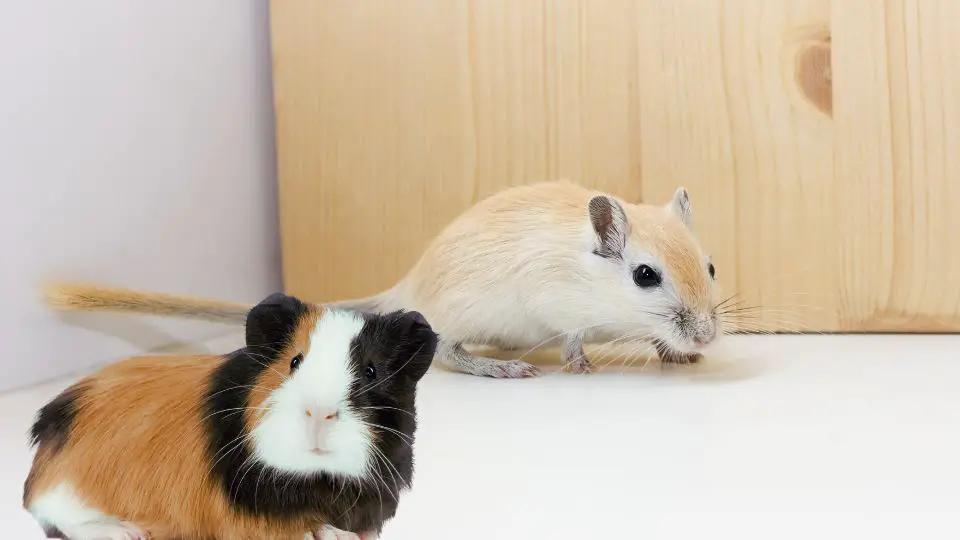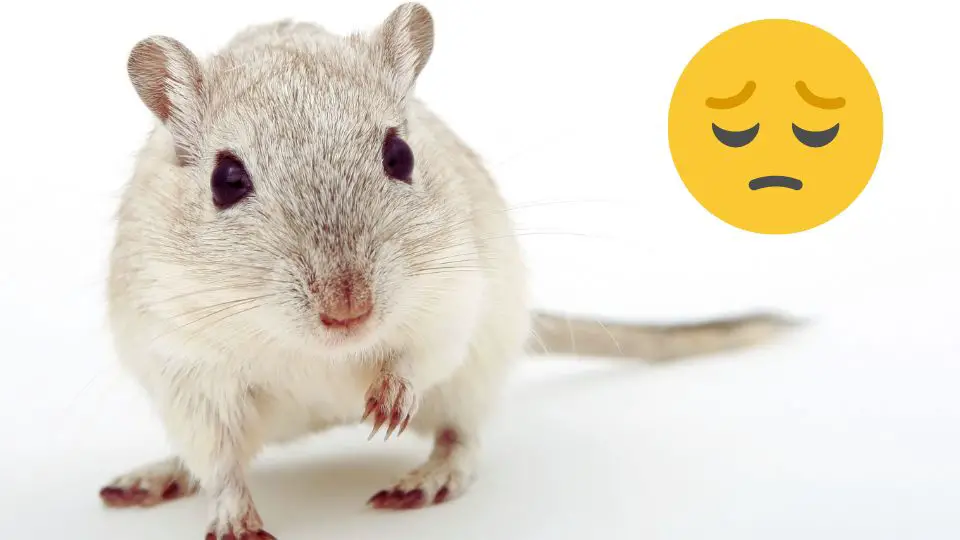If you’ve noticed that your gerbil has recently gained weight and appears to be larger than usual, you may be wondering about the possible reasons behind this sudden change.
Weight gain in gerbils can occur for various reasons, ranging from dietary factors to health conditions.
Understanding the potential causes of sudden weight gain is important for ensuring the well-being of your gerbil.
Pregnancy
Pregnancy can be a significant factor contributing to sudden weight gain in female gerbils. It’s important to be aware of the possibility of pregnancy and understand the signs and behaviors associated with it. Here are some key points to consider:
- Recognizing the signs: Female gerbils can become pregnant as early as five weeks of age. If your female gerbil has been housed with a male gerbil, there is a possibility of pregnancy. Some signs to look out for including a noticeable increase in abdominal size, weight gain, and changes in behavior.
- Gestation period: The gestation period for gerbils is typically around 24 to 26 days. During this time, the female gerbil’s abdomen will continue to grow as the babies develop inside. It’s important to provide appropriate nesting materials and a secluded area for the female to give birth and care for her offspring.
- Care during pregnancy: It’s crucial to provide a safe and stress-free environment for the pregnant gerbil. Avoid excessive handling or disturbing the nesting area to minimize the risk of stress or harm to the pregnant gerbil and her babies.
- Separating male and female gerbils: If you suspect that your female gerbil is pregnant, separate her from any male gerbils to prevent further breeding. Female gerbils can become pregnant again shortly after giving birth, so separating them from males will help prevent excessive breeding and potential health risks.
- Seeking veterinary advice: If you suspect your gerbil may be pregnant or if you have any concerns about her health, it’s recommended to consult with a veterinarian who has experience in treating small animals. They can provide guidance, conduct a physical examination, and address any questions or concerns you may have.
Remember, the health and well-being of your gerbil and her potential offspring should always be a priority. If you suspect pregnancy or have any concerns, seek professional advice to ensure the best care for your gerbil during this time
Dietary Factors
In our experience, dietary factors can play a significant role in sudden weight gain in gerbils. Understand the impact of overfeeding and high-calorie treats on a gerbil’s weight and overall health. Here are some key points to consider:
Overfeeding
Overfeeding is a common cause of weight gain in gerbils. While it may be tempting to provide unlimited food, it’s crucial to practice portion control. Gerbils have specific dietary needs, and overfeeding can lead to obesity and related health issues. Providing the right amount of food based on their size, age, and activity level is essential for maintaining a healthy weight. Consult a veterinarian or gerbil expert to determine the appropriate portion sizes for your gerbil.
High-Calorie Treats
Treats can be a fun way to bond with your gerbil and provide enrichment, but it’s important to offer them in moderation. High-calorie treats, such as seeds or nuts, should be given sparingly. These treats are rich in fats and can contribute to weight gain if consumed excessively. Instead, opt for healthier treat options, such as small pieces of fresh fruits or vegetables. These treats provide essential nutrients and are lower in calories, making them a better choice for maintaining a healthy weight.
In our experience, monitoring the quantity and quality of food given to gerbils is crucial for their overall well-being. Regularly assessing their body condition and adjusting their diet as needed can help prevent sudden weight gain and associated health problems. Additionally, providing opportunities for exercise and mental stimulation, such as placing food in puzzle toys or providing a variety of chew toys, can help keep gerbils active and prevent excessive weight gain.
If you notice sudden weight gain in your gerbil or have concerns about their diet, consult a veterinarian or a gerbil expert for personalized advice. They can assess your gerbil’s overall health, offer dietary recommendations, and help you establish a balanced and appropriate diet plan for your furry friend.
Lack of Exercise
A sedentary lifestyle can contribute to weight gain in gerbils, just as it can in humans. Lack of exercise and physical activity can lead to a decrease in metabolism and energy expenditure, resulting in weight gain over time. Provide ample opportunities for gerbils to exercise and engage in physical activity to maintain a healthy weight.
Here are some key points to consider regarding the role of exercise in managing gerbil weight:
- Encourage Physical Activity: Gerbils are naturally active animals and require regular exercise to stay healthy. Provide them with a spacious habitat that allows for running, climbing, and exploring. Consider adding exercise wheels, tunnels, and platforms to promote movement and stimulate their natural instincts.
- Environmental Enrichment: Create an enriching environment by adding toys, tunnels, and objects for them to explore and interact with. This not only provides mental stimulation but also encourages physical activity. Rotate and introduce new toys regularly to keep them engaged and prevent boredom.
- Playtime and Bonding: Set aside dedicated playtime for interacting with your gerbil. Use interactive toys, such as tunnels or balls, to encourage them to move and play. Engaging in gentle activities like supervised floor time or obstacle courses can also be beneficial for their physical health and strengthen the bond between you and your gerbil.
- Encourage Natural Behaviors: Allow gerbils to exhibit their natural behaviors, such as digging and burrowing. Provide a deep layer of bedding that allows them to engage in these activities, which can provide physical exercise and mental stimulation.
- Monitor Diet and Treats: While exercise is essential for weight management, it’s important to balance it with a healthy diet. Avoid overfeeding and provide a balanced, nutritionally complete gerbil food. Limit the consumption of high-calorie treats to prevent excessive weight gain.
Health Conditions
Hormonal imbalances and digestive disorders are two health conditions that can contribute to weight gain in gerbils. Understanding these conditions and seeking appropriate veterinary care is crucial for managing your gerbil’s weight and overall health.
- Hormonal Imbalances: Hormonal imbalances can disrupt a gerbil’s metabolism and lead to weight gain. Certain hormonal conditions, such as hypothyroidism or Cushing’s disease, may affect their ability to regulate weight. If you notice significant and unexplained weight gain in your gerbil, it’s important to consult a veterinarian for proper diagnosis and treatment options.
- Digestive Disorders: Digestive disorders can impact a gerbil’s weight and overall well-being. Conditions like malabsorption or gastrointestinal infections can interfere with nutrient absorption, leading to weight gain or loss. If your gerbil experiences digestive issues, such as diarrhea, constipation, or changes in appetite, it’s essential to seek veterinary evaluation and appropriate treatment.
Conclusion
In conclusion, sudden weight gain in gerbils can be caused by a variety of factors, including overfeeding, high-calorie treats, lack of exercise, hormonal imbalances, and digestive disorders. It’s crucial to assess your gerbil’s diet, provide ample opportunities for exercise, and monitor their overall health.
If you have concerns about your gerbil’s weight or suspect any underlying health conditions, it’s recommended to consult with a veterinarian who specializes in small animals or exotics. They can provide a proper diagnosis, offer guidance on diet and exercise, and recommend appropriate treatment options if needed. By addressing the underlying cause of your gerbil’s weight gain, you can help them maintain a healthy weight and support their overall well-being.







